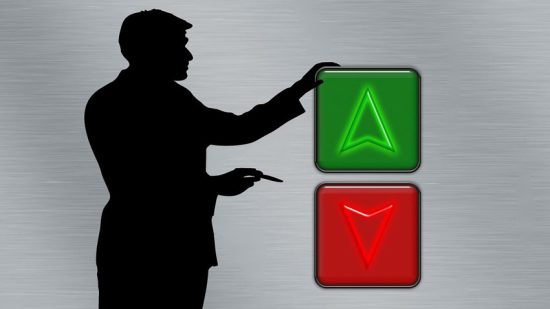The dangerous trivialisation of narcissism in the spiritual scene!

The spiritual scene, which often prides itself on being mature and highly developed, frequently reveals significant paradoxes. Many people in this community have very rigid ideas about how a spiritual or ‘evolved’ person should be. One is quickly labeled as ‘triggered’ or entangled in ‘ego issues’ when discussing serious topics like abuse. The outcry from some members of the community is often immediate and intense.
This was also the case for my very close friend, who publicly shared her experiences with a narcissistic ex-partner—someone who was extremely manipulative, gaslighted her, lied repeatedly, had violent outbursts and even tried to cause her massive harm by making false accusations to the police. She shared these experiences in the hope of encouraging and educating other women in similar situations about the issue, which immediately earned her criticism that it was just her hurt ego talking.
I find this type of reaction, and the accompanying trivialization and devaluation of her experiences, concerning from various perspectives and even dangerous for the victims.
Narcissism – A Serious Personality Disorder
Anyone who seriously engages with the topic of narcissism and reads scholarly literature knows that narcissism (NPD) is a recognized personality disorder. Experts like psychology professor Sam Vaknin, a leading researcher in this field, emphasize that narcissists are almost incapable of change due to deeply rooted developmental disorders. Vaknin describes that narcissists are emotionally stuck in the developmental stage of a three-year-old child. This is in line with the experiences of many victims who, despite great efforts, have been unable to notice any change in the behaviour of their narcissistic partners. Instead, they find themselves increasingly entangled in a web of manipulation and gaslighting that makes them doubt their own perceptions.
Trivialization through Spiritual Advice
In the spiritual scene, such serious reports often encounter seemingly well-intentioned but dangerous advice. Comments like ‘That’s just your wounded ego speaking’, ‘Everyone can change for the better, even narcissists’ or ‘We all have narcissistic traits’ trivialize the severity of the situation and contradict the statements of professionals. A significant part of narcissistic abuse is that victims often cannot see or admit to themselves that there are truly people whose toxicity is so extreme that one might think such characters only exist in movies, not in real life. These people are masters of manipulation who have perfectly nailed the art of masquerade and can therefore exert a great influence on their victims. People with narcissistic-psychopathic traits who are only focused on their own advantage and thus incapable of forming a true and deep connection with others.
This is where this well-intentioned but superficial spiritual advice comes into play in a particularly dangerous way, as it confirms the victim’s doubts and reinforces the idea that such people cannot exist. This contributes to those affected remaining in the abusive relationship for longer and continuing to be manipulated and abused. These trivialisations are therefore particularly dangerous for victims who are still in such relationships and are struggling with the consequences of extreme gaslighting and abuse.
Lack of Empathy
When the initial reaction to such a deeply hurtful experience is to tell the victim that the perpetrator also deserves our love and compassion, then this is not only extremely insensitive but also speaks of a lack of empathy. Interestingly, these reactions often come from people who present themselves as particularly advanced in a spiritual sense by constantly preaching love and light. Yet, they often behave exactly the opposite of how they would like to see themselves: empathetic, compassionate, and understanding.
Such comments often have a subliminal moralising tone that lectures the victim. This leads to the affected individual feeling bad when expressing their feelings of pain and anger and feeling unable to talk about the matter anymore, as these types of moralistic comments act like a muzzle.
Narcissism is More Than Just Vanity
Often, there is criticism that nowadays, everyone sees narcissism and narcissistic disorders everywhere. Some even avoid using the word altogether and prefer to use paraphrases for fear of being judged. However, this criticism generalizes heavily and shows a lack of discernment. There is a lack of attention to detail. Because if there were, one would see that the people who truly use the word narcissism often report profound experiences that involve abuse, gaslighting, and massive lies—all of which are part of a narcissistic disorder. I have never heard anyone talk about narcissism and say, ‘My ex used to spend hours looking at himself in the mirror…’ Instead, they speak of serious and damaging behaviors that have significantly impacted their lives and often took them years to recover from.
The important distinction between personal responsibility and guilt
Of course, victims can also learn from these experiences—self-love, setting boundaries, standing up for oneself. These are aspects of one’s personality that often contribute to maintaining a toxic relationship. These issues are brought to light by narcissistic abuse, allowing the victim to work on them. It is important to emphasize that this does not mean the victim is to blame for the abuse. Instead, it reflects the need to recognize one’s own weaknesses and work on them to avoid such relationships in the future. Blaming both parties misunderstands the dynamics of narcissistic abuse and the psychological reality of this personality disorder.
It is time for the spiritual community to develop more resilience for unpleasant and difficult topics. Because how can we be ‘love and light’ if we ignore or even devalue the deep wounds of those affected? Superficial comments and reactions turn victims into culprits instead of giving them the space and compassion they need to heal. In the end, this is nothing more than a form of gaslighting – similar to what narcissists do. We need to learn to listen, to look seriously and to give victims of abuse the space to process and heal their experiences. Only then can we build a truly compassionate and supportive community that does not close itself off to unpleasant truths.




